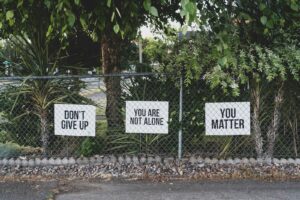Women with learning disabilities urged to share their healthcare experiences
Women with learning disabilities are being urged to respond to the call for evidence that will shape the first government-led Women’s Health Strategy to improve health and wellbeing and ensure health services are meeting the needs of women.
An easy read version of the call for evidence has been launched today with the aim of encouraging more women with learning disabilities to share their experiences of the health and care system.
There are approximately 1.2m people with a learning disability in England, many of whom experience health inequalities as a result of their condition as well as having commonly associated health conditions including mental health problems, dementia, epilepsy, and being underweight or overweight.
On average women with a learning disability die 27 years earlier than those without. Some examples of other health inequalities include, in 2019/20, just 33.6% of eligible women with a learning disability had an adequate smear test, compared to 68% without a learning disability, and only half of eligible women with a learning disability had been screened for breast cancer, compared to 65% of eligible patients without a learning disability.
Ciara Lawrence, who has a learning disability and is the Big Plan engagement lead at the learning disability charity Mencap, said:
‘Women with a learning disability die 27 years younger than other women. This isn’t right and more needs to be done to find out what is going wrong. I’m 41 years old and I feel lucky to have made it this far.
‘Having accessible information means the world to people with a learning disability and helps us be a part of society. It’s great that this consultation is in easy read. The government now must listen to what women with a learning disability say and make sure that the new plan gets it right for them.
‘I encourage other women with a learning disability to participate in the Women’s Health Strategy. It is very important that we have our voices heard because we have rights like anyone else.
‘I want women to be treated equally and have access to good healthcare. If we come together and raise our issues, we can change our lives for the better.’
Patricia Charlesworth, Learning Disability England spokesperson and self-advocate said: ‘We welcome the accessible information that will make it easier for women with learning disabilities to take part.
‘Women with learning disabilities die often preventable, deaths up to 27 years sooner than the general population. It is important that our voice is heard and action is taken to stop us dying before our time.’
Women of all ages and backgrounds are being urged to respond to the call for evidence in order to capture the varying health issues women experience over their lives and the significant differences between women in terms of access to services, experience of services and health outcomes.
People who live with and care for women, organisations with experience of providing services for women and those with an expertise in women’s health are also encouraged to share their views.
Minister for care, Helen Whately said: ‘The healthcare system needs to work for everyone, including and especially for those who perhaps need that bit of extra support in life.
‘We know people with learning disabilities have a shorter life expectancy than the general population, and this is especially true for women.
‘I want to make sure we address the inequalities which exist within society and by making this call for evidence more accessible we are opening up the possibilities for more voices to be heard.
‘I would urge all women to come forward and share their experience and contribute to the Women’s Health Strategy to help shape a health and care system that works for us all.’
Photo Credit – Pixabay
















